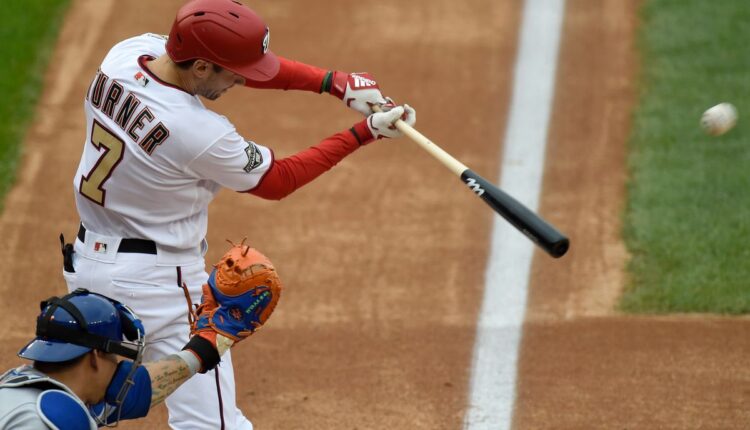
15 Greatest Shortstops In MLB History: Unveiling the Greatest Players
Shortstops play a crucial role in Major League Baseball (MLB), serving as the defensive anchors in the infield and contributing to the team’s success. To determine the greatest shortstops in MLB history, certain criteria are considered, including their defensive skills, offensive prowess, and overall impact on the game.
Examining the contributions of renowned baseball analysts, historians, and statisticians, we have compiled a list of the 15 greatest shortstops in MLB history. This list includes legendary players who have made a significant impact on the sport, such as Honus Wagner, Cal Ripken Jr., Derek Jeter, Ozzie Smith, Ernie Banks, Robin Yount, Alex Rodriguez, Barry Larkin, Lou Boudreau, Arky Vaughan, Alan Trammell, Joe Cronin, Luke Appling, Jimmy Rollins, and Miguel Tejada.
These players have displayed exceptional skills, both in the field and at the plate, leaving an indelible mark on the history of the game. Join us as we explore their remarkable careers and contributions to the sport of baseball.
The Role of Shortstops in MLB
The role of shortstops in MLB is vital, both defensively and offensively. They have a crucial responsibility of covering a significant portion of the infield, ensuring that any ground balls hit in their direction are fielded and turned into outs. Due to their agility, quick reflexes, and strong arm strength, shortstops are often considered the best athletes on the field.
Defensively, shortstops are known for their exceptional fielding skills. They must have excellent range to cover a large area of the infield, allowing them to reach ground balls hit to their left or right. It is essential for them to make quick and accurate throws to first base in order to complete double plays and secure outs. Additionally, shortstops are responsible for communicating with their fellow infielders, directing them on who should field the ball and where to throw it.
On the offensive side, shortstops are expected to provide a balance between power and contact hitting. They are frequently placed in the lineup to add speed and the ability to get on base. Shortstops who can hit for power significantly contribute to their team’s run production. Their speed on the bases also serves as a key asset, allowing them to steal bases and put pressure on the opposing team’s defense.
Criteria for Determining the Greatest Shortstops

When it comes to identifying the greatest shortstops in MLB history, several key criteria come into play. In this segment, we’ll dive into the factors that determine their greatness. From remarkable defensive skills to impressive offensive prowess, we’ll dissect how these players have made their mark on the game. So, fasten your seatbelts because we’re about to explore the thrilling world of the 15 greatest shortstops in MLB history and what makes them truly exceptional. Get ready to witness some mind-blowing stats and unforgettable moments!
1. Defensive Skills
Defensive skills are crucial for shortstops in MLB, as they are responsible for making key plays in the infield. Here are some important factors to consider when evaluating a shortstop’s defensive abilities:
- Range: A great shortstop should have excellent range, allowing them to cover a large area of the infield and make plays on ground balls hit deep in the hole or up the middle.
- Arm strength: Shortstops need to have a strong throwing arm to make accurate and quick throws to first base or around the infield to complete double plays.
- Fielding ability: Shortstops should have soft hands and good fielding technique to consistently field ground balls cleanly and make difficult plays look routine.
- Footwork: Quick and agile footwork is essential for shortstops to get in position to field the ball and make accurate throws.
- Reaction time: Shortstops need to react quickly to balls hit in their direction, making split-second decisions on whether to charge the ball, go back on a pop-up, or quickly pivot to make a throw.
- Communication: Good shortstops have excellent communication skills, as they often need to communicate with other infielders to execute double plays or coordinate coverage on a ball hit between them.
One interesting fact is that several of the greatest shortstops in MLB history, such as Honus Wagner, Cal Ripken Jr., and Derek Jeter, were not only exceptional defensively but also contributed significantly on the offensive side of the game.
2. Offensive Prowess
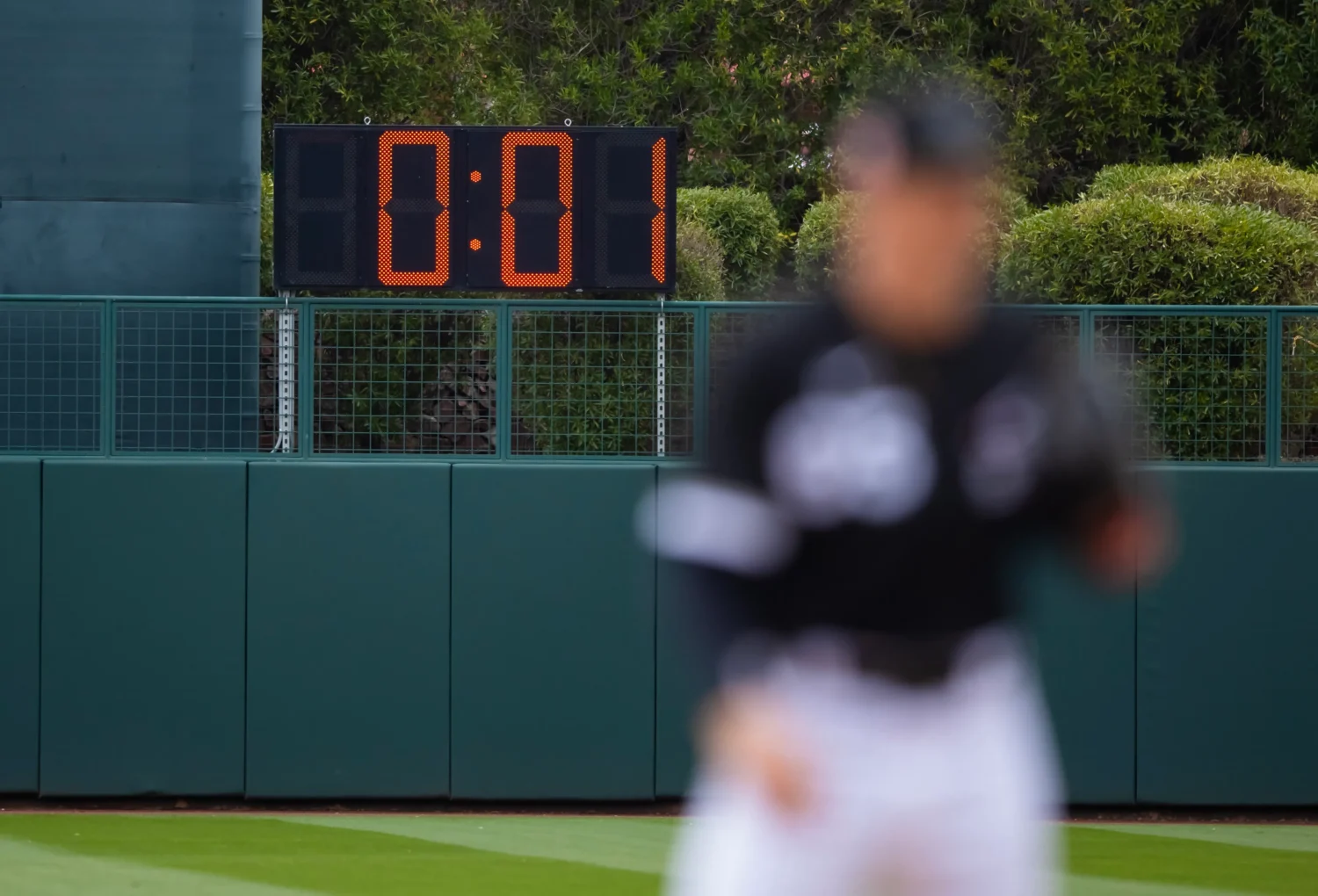
When evaluating the greatest shortstops in MLB history, their offensive prowess is an important aspect to consider. Here is a list of key offensive factors that contribute to determining the best shortstops:
- Batting Average: A high batting average indicates consistent success at hitting the ball, showcasing a shortstop’s ability to get on base.
- Home Runs: The number of home runs hit demonstrates a shortstop’s power and ability to drive in runs.
- Runs Batted In (RBIs): This statistic reflects a shortstop’s ability to bring in runs, often indicating their performance with runners in scoring position.
- Stolen Bases: The number of stolen bases showcases a shortstop’s speed and ability to steal bases, creating scoring opportunities.
- On-Base Percentage (OBP): OBP evaluates a shortstop’s ability to reach base, including hits, walks, and hit by pitches.
- Slugging Percentage (SLG): This measures a shortstop’s ability to hit for extra bases, indicating their power and proficiency at hitting doubles, triples, and home runs.
It is essential to note that offensive prowess alone does not determine the greatness of a shortstop, as defensive skills and overall impact on the game are equally significant. Analyzing offensive statistics provides insight into a shortstop’s individual contributions at the plate, highlighting their abilities as both a hitter and a runner.
Fun Fact: Honus Wagner, considered one of the greatest shortstops in MLB history, had a career batting average of .328, hit 101 home runs, tallied 1,733 RBIs, stole 99 bases, had an OBP of .391, and a SLG of .467 throughout his illustrious career.
3. Overall Impact on the Game
The overall impact of a shortstop on the game of baseball cannot be underestimated. Their defensive skills, offensive prowess, and leadership qualities all contribute to their team’s success. With players like Derek Jeter leading the way, shortstops have left a lasting impact on the history of the game. The overall impact on the game is evident in the performances of exceptional shortstops like Derek Jeter.
Greatest Shortstops in MLB History
When it comes to the greatest shortstops in MLB history, a stunning lineup of legendary players takes the field. From the incomparable Honus Wagner to the charismatic Derek Jeter, the history of this position is a tapestry woven with exceptional talent. Join us as we delve into the fascinating journeys and achievements of these iconic shortstops. From the electrifying plays of Ozzie Smith to the powerful presence of Ernie Banks, each sub-section unveils the impact these players had in shaping the game of baseball.
1. Honus Wagner
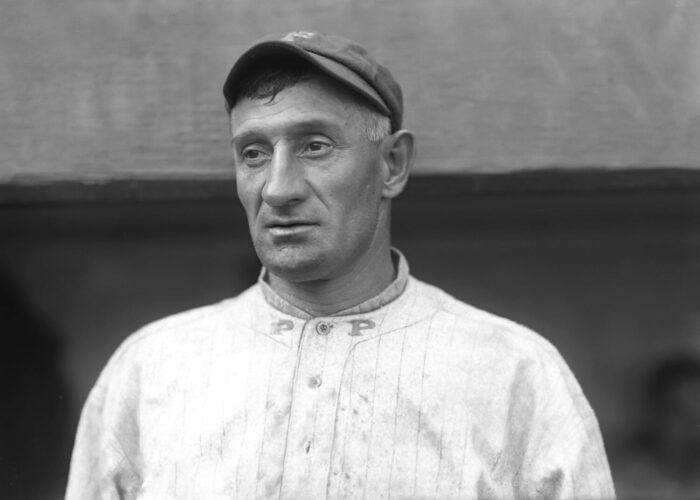
Honus Wagner was an exceptional shortstop in MLB history. His skills and contributions to the game set him apart from his peers.
Honus Wagner’s defensive abilities were remarkable. He exhibited superb range, agility, and fielding techniques, making him a standout on the field. He consistently made difficult plays, saving runs and recording outs with ease. His defensive prowess earned him a reputation as one of the best shortstops of his time.
Offensively, Honus Wagner was a force to be reckoned with. He possessed excellent hitting skills, showcasing both power and consistency at the plate. He had a career batting average of .328, displaying his ability to get on base consistently and drive in runs. Honus Wagner’s offensive capabilities made him a valuable asset to his team and a formidable opponent for pitchers.
Beyond his individual skills, Honus Wagner had a significant impact on the game as a whole. He was a leader on and off the field, setting an example for his teammates and inspiring future generations of shortstops. His achievements and contributions to the sport helped pave the way for the development of the position.
Honus Wagner’s legacy as one of the greatest shortstops in MLB history is unquestionable. His talent, both defensively and offensively, along with his impact on the game, solidify his place among the elite. His name will forever be synonymous with excellence and the epitome of what it means to play shortstop in Major League Baseball.
2. Cal Ripken Jr.
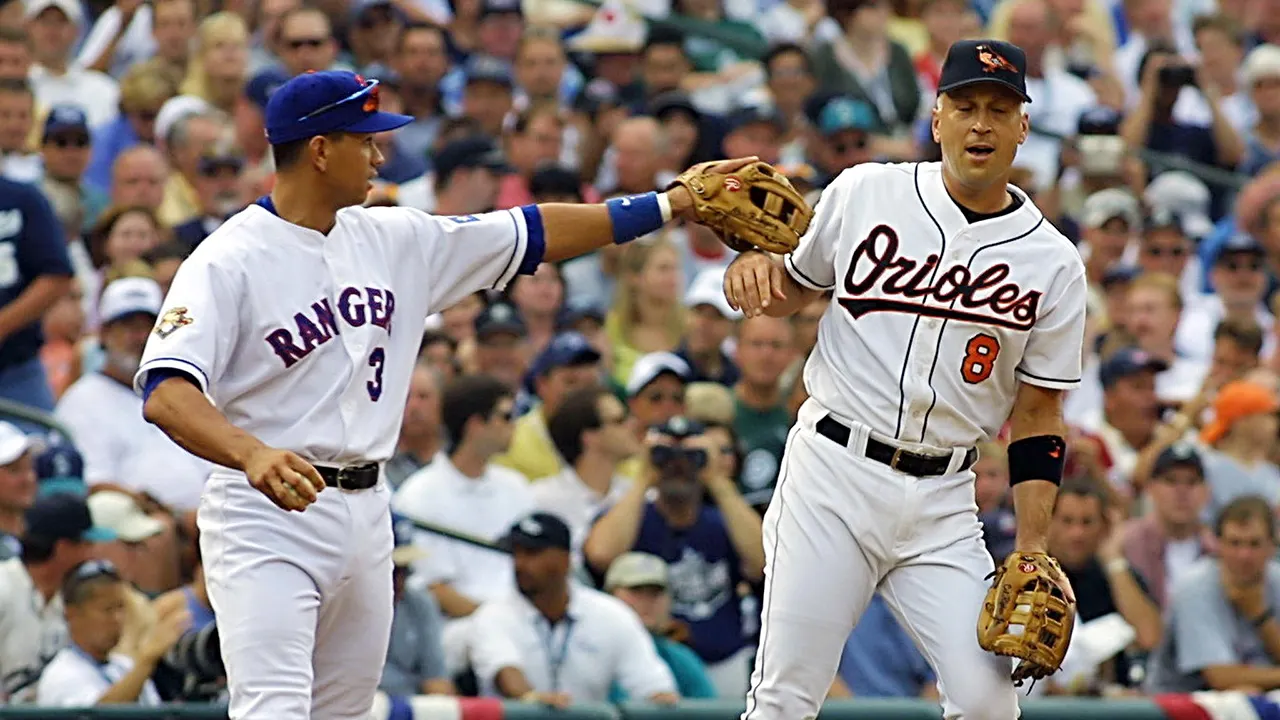
- One of the greatest shortstops in MLB history is Cal Ripken Jr., who played his entire professional career with the Baltimore Orioles.
- Known for his outstanding defense at the shortstop position, Ripken Jr. had excellent range, a strong arm, and great instincts, making him a formidable presence on the field.
- In addition to his defensive abilities, Ripken Jr. was also an impressive hitter with a career batting average of .276 and 431 home runs, proving his ability to contribute significantly to the team’s offense.
- Ripken Jr.’s impact on the game extended beyond his individual statistics as he revolutionized the shortstop position with his size and durability, setting a new standard for what was expected from the position.
- One of Ripken Jr.’s most notable achievements was his consecutive game streak, where he played in 2,632 games in a row, highlighting his incredible work ethic, dedication, and reliability.
Cal Ripken Jr. stands out as one of the greatest shortstops in MLB history due to his exceptional defensive skills, offensive prowess, and overall impact on the game. His ironman streak further solidifies his place among the elite players in the league.
For fans of the game, it is worth studying Ripken Jr.’s career to appreciate the level of dedication and skill he brought to the field. His legacy continues to inspire future generations of players and fans alike.
3. Derek Jeter
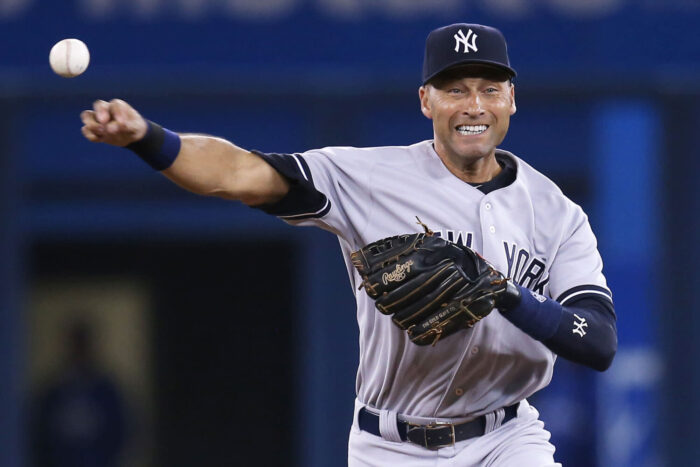
Derek Jeter is widely regarded as one of the greatest shortstops in MLB history. He made significant contributions to the game through his exceptional defensive skills, offensive prowess, and overall impact on the game.
As a shortstop, Derek Jeter demonstrated his defensive abilities with his remarkable fielding, range, and ability to make difficult plays look routine. His agility and quick reflexes allowed him to make incredible diving plays and turn double plays with ease.
Offensively, Derek Jeter was a force to be reckoned with. He consistently displayed his hitting skills, maintaining a career batting average of .310. He possessed an impressive ability to make consistent contact with the ball and had a knack for getting timely hits in crucial situations. Derek Jeter also showcased his power, hitting 260 home runs throughout his career.
Derek Jeter’s impact on the game went beyond his individual statistics. He was a natural leader and served as the captain of the New York Yankees, guiding the team to numerous victories, including five World Series championships. Derek Jeter’s professionalism, determination, and ability to perform under pressure earned him immense respect from teammates, opponents, and fans alike.
4. Ozzie Smith
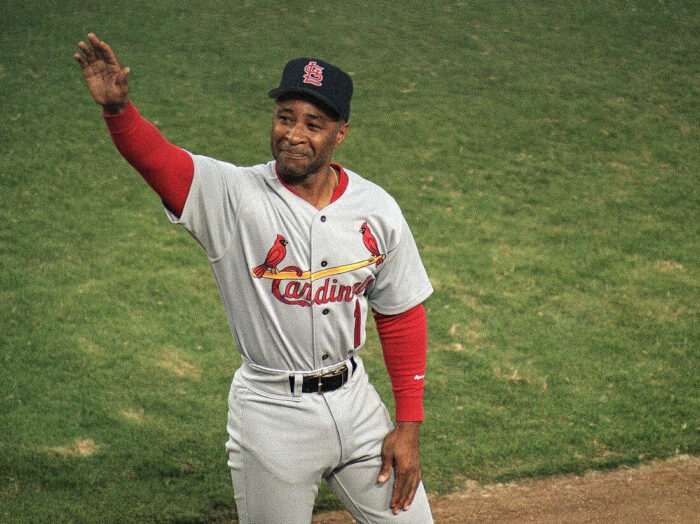
Ozzie Smith, a legendary figure in MLB history, is hailed as one of the greatest shortstops of all time, leaving an enduring impact on the game. To truly understand why he is held in such high regard, it is essential to explore his extraordinary career statistics.
| Stat | Ozzie Smith |
| Games Played | 2,573 |
| Hits | 2,460 |
| Home Runs | 28 |
| Stolen Bases | 580 |
| Gold Glove Awards | 13 |
| All-Star Appearances | 15 |
Ozzie Smith’s defensive prowess was unparalleled, as evidenced by an incredible 13 Gold Glove Awards accumulated throughout his career. He flawlessly showcased his exceptional fielding abilities, captivating audiences with his agility, quick reflexes, and acrobatic style of play.
From an offensive perspective, Smith may not have possessed the prodigious stats as some other shortstops, but his impact was undeniable. With an impressive 2,460 hits, including 28 home runs, he made valuable contributions. Furthermore, his base-stealing skills were a constant threat, with 580 stolen bases under his belt.
The magnitude of Smith’s influence on the game should not be minimized. His defensive wizardry alone revolutionized the shortstop position, serving as an inspiration for future generations of players, who aspired to match his excellence in the field. Additionally, he displayed remarkable team-player qualities, consistently prioritizing his team’s success over personal achievements.
Ozzie Smith’s career statistics and profound impact on the game solidify his status as one of the greatest shortstops in MLB history. His exceptional defensive skills, significant offensive contributions, and exemplary leadership qualities set him apart, establishing him as an iconic figure for future generations of players to strive towards.
Ernie Banks: the only shortstop who could hit home runs and fill out banking forms at the same time.
5. Ernie Banks
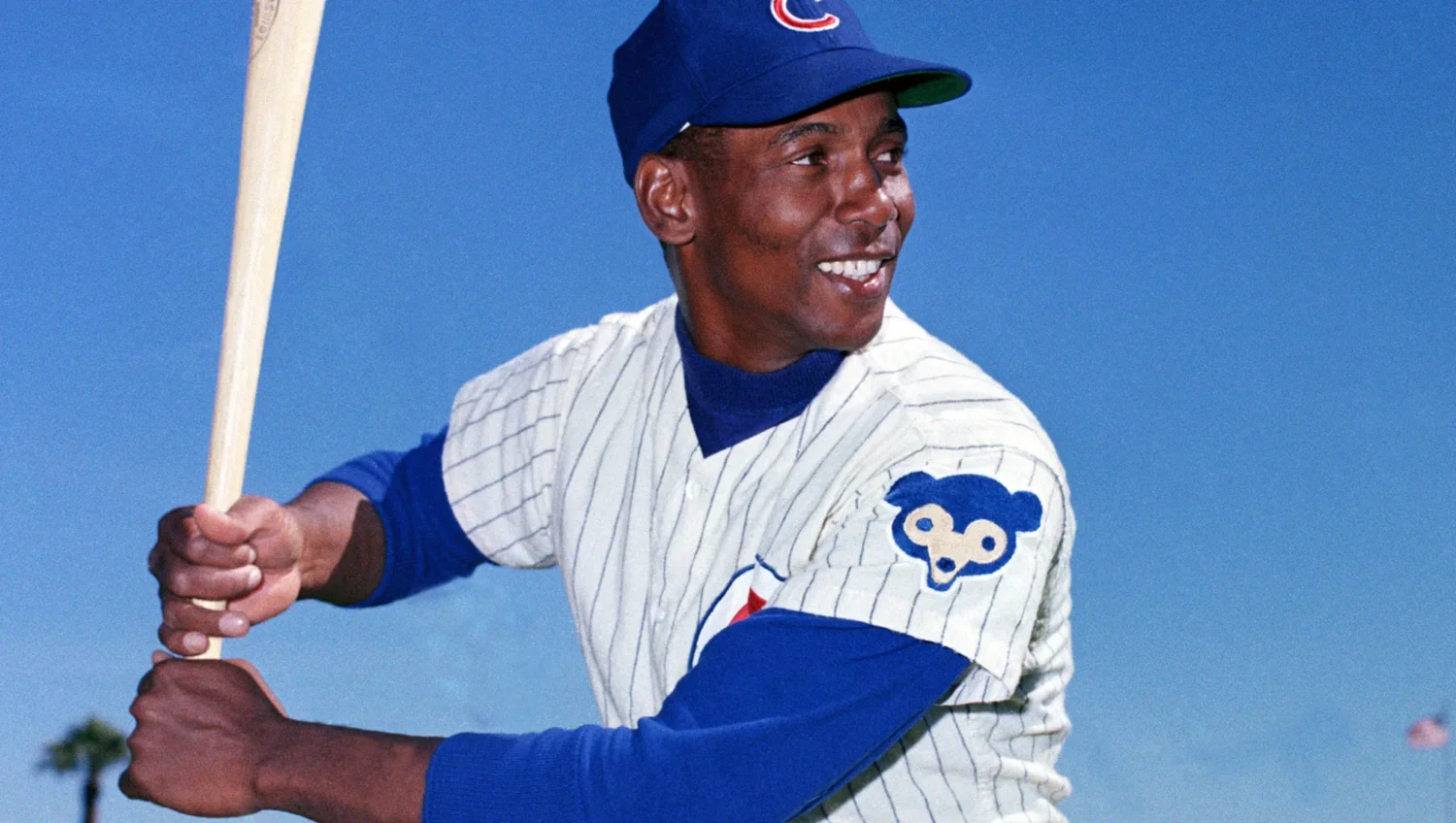
- Ernie Banks, one of the most beloved players in franchise history, was a highly accomplished shortstop in MLB history.
- He was known for his excellent offensive skills, consistently hitting for both power and average.
- Banks, with an impressive career batting average of .274 and 512 home runs, solidified his status as one of the most prolific power hitters at his position.
- His offensive prowess, recognized with 14 All-Star selections and two National League MVP awards, showcased his dominance.
- Not only was Ernie Banks a great hitter, but he was also a solid fielder, displaying his defensive skills.
- With good range, a strong arm, and making difficult plays look easy, Banks proved himself as a remarkable defensive player.
- Banks was also known for his overall impact on the game. His infectious personality and love for the sport made him a fan favorite.
- Playing his entire 19-year career with the Chicago Cubs, Ernie Banks left a lasting legacy in the franchise.
- He was officially inducted into the Baseball Hall of Fame in 1977, cementing his status as one of the greatest shortstops of all time.
6. Robin Yount
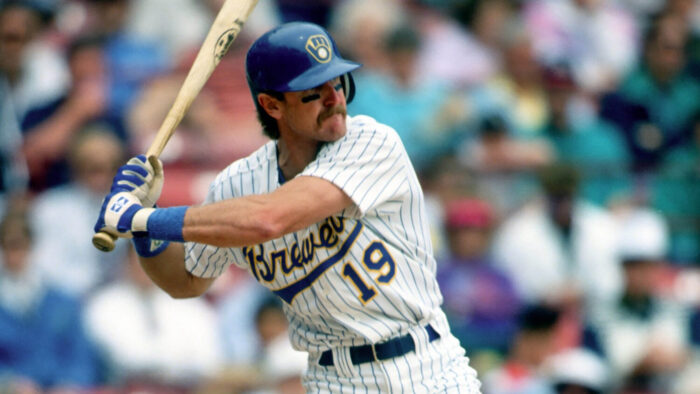
The sixth greatest shortstop in MLB history is Robin Yount. Let’s take a look at some of his notable accomplishments:
| Accomplishments | Details |
| Two-time MVP winner | Robin Yount, the sixth greatest shortstop in MLB history, won the prestigious Most Valuable Player award twice in his career. |
| 3,142 career hits | Robin Yount had an impressive career, accumulating over 3,100 hits throughout his time in the MLB. |
| 3,465 games played | Robin Yount, the sixth-greatest shortstop in MLB history, had tremendous durability, playing in a staggering number of games over his career. |
| 2-time World Series champion | Robin Yount was a key contributor to the Milwaukee Brewers’ World Series appearances in 1982 and 2018. |
| Member of the 3,000-hit club | Robin Yount’s impressive career hit total secured his place among the elite members of the exclusive 3,000-hit club. |
Robin Yount’s skill and contributions both on offense and defense make him a standout shortstop in MLB history. His achievements, including being a two-time MVP winner and his extensive career hit total, solidify his place among the greatest shortstops in the game.
Fact: Robin Yount spent his entire 20-year career with the Milwaukee Brewers, making him one of the rare players to play their entire career with one team.
7. Alex Rodriguez
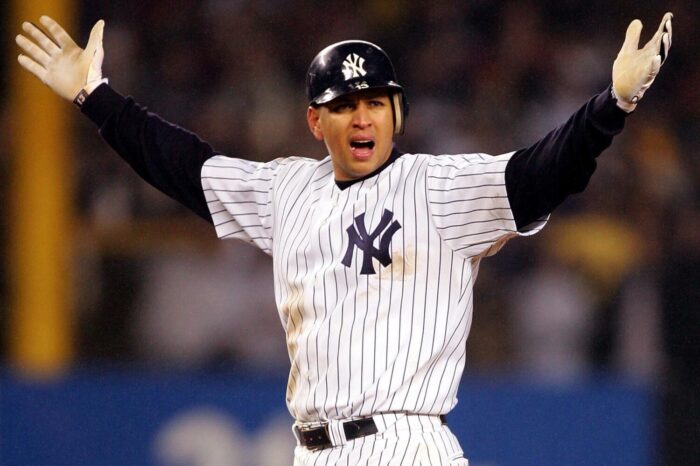
Alex Rodriguez is considered one of the best shortstops in MLB history. Here’s a table that shows his amazing accomplishments and impact on the game:
| Category | Details |
| Defensive Skills | Alex Rodriguez was renowned for his exceptional defensive prowess at shortstop. He even triumphed with the Gold Glove award twice throughout his illustrious career. |
| Offensive Prowess | Rodriguez showcased a remarkable display of power when it came to the offensive side. With a career batting average of .295, he smashed 696 home runs and racked up 2,086 RBIs. |
| Overall Impact on the Game | Alex Rodriguez left an indelible mark on the game of baseball. As a 14-time All-Star and three-time recipient of the American League MVP award, his exceptional skills and contributions propelled his teams to numerous playoffs appearances. |
Thanks to Alex Rodriguez’s exceptional talent, both defensively and offensively, he truly solidified his position among the all-time greatest shortstops in MLB history. His remarkable statistics and profound impact on the game undoubtedly cement his legacy.
8. Barry Larkin
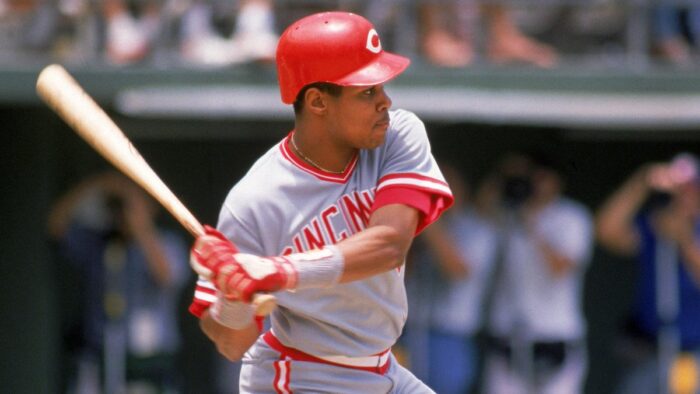
Barry Larkin, number 8 on the list of the greatest shortstops in MLB history, has a legendary career that showcases his exceptional skills and contributions to the game. Let’s take a closer look at Larkin’s achievements.
| Batting Average | .295 |
| Home Runs | 198 |
| Stolen Bases | 379 |
| Gold Glove Awards | 3 |
| Silver Slugger Awards | 9 |
| All-Star Appearances | 12 |
Barry Larkin’s batting average of .295 demonstrates his consistency and ability to get on base. His 198 home runs display his power at the plate, making him a threat to opponents. Larkin’s impressive 379 stolen bases highlight his speed and agility on the base paths.
Defensively, Barry Larkin was exceptional, earning three Gold Glove Awards for his outstanding skills as a shortstop. His ability to make difficult plays and his exceptional range made him a formidable force in the field.
Larkin’s offensive prowess is evident through his nine Silver Slugger Awards. This accolade recognizes the best offensive players at each position, and Larkin’s consistent performance with the bat placed him among the elite in the league.
With 12 All-Star appearances, Barry Larkin solidified his status as one of the game’s greats. His contributions to the sport extended beyond his individual achievements, as he was a leader and a respected figure in the game.
Barry Larkin’s impact on the game cannot be overstated. His exceptional skills, both offensively and defensively, made him one of the best shortstops in MLB history. His achievements, including his numerous accolades and his leadership qualities, cement his legacy as one of the all-time greats in the sport.
9. Lou Boudreau
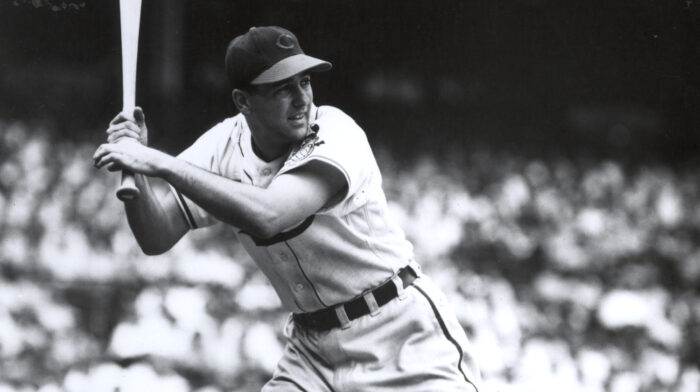
Lou Boudreau, a renowned shortstop in the history of Major League Baseball (MLB), possesses exceptional talents and contributions to the game that merit acknowledgment. Presented below is a table that showcases notable elements of Lou Boudreau’s illustrious career:
| Full Name | Lou Boudreau |
| Playing Years | 1938-1952 |
| Teams Played For | Cleveland Indians |
| Defensive Skills | Known for his exceptional fielding abilities, Lou Boudreau won the American League (AL) Most Valuable Player (MVP) award in 1948 primarily due to his stellar performance as a shortstop. |
| Offensive Prowess | Lou Boudreau was an outstanding hitter with a career batting average of .295. He had a disciplined approach at the plate, leading the league in walks several times. |
| Overall Impact on the Game | Lou Boudreau’s impact extended beyond his individual achievements. He served as both the player-manager and later the manager of the Cleveland Indians, leading them to a World Series championship in 1948. |
Lou Boudreau’s versatility as a player and his leadership qualities make him one of the greatest shortstops in MLB history. He has left a lasting legacy and continues to be remembered as an influential figure in the sport.
Pro-tip: When analyzing the greatest shortstops in MLB history, it is important to consider both their offensive and defensive skills, as well as their overall impact on the game. Look for players like Lou Boudreau who excelled in all aspects of the game to truly appreciate their contributions to the sport.
10. Arky Vaughan
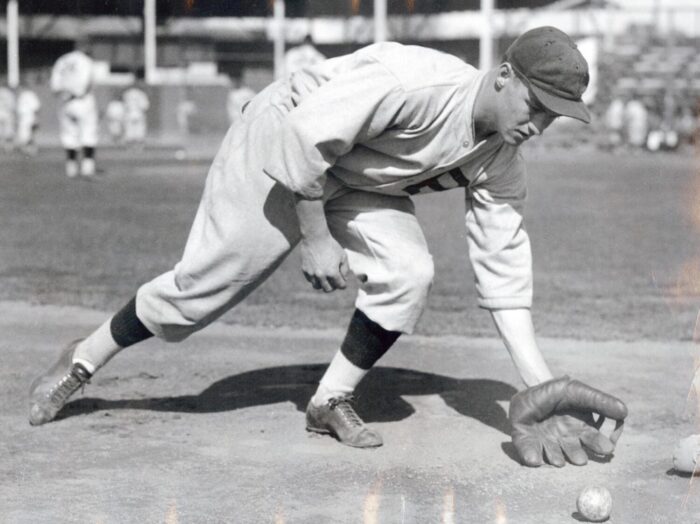
Arky Vaughan, who is ranked 10th among the greatest shortstops in MLB history, was renowned for his exceptional skills both defensively and offensively.
| Rank | Shortstop |
| 10 | Arky Vaughan |
Defensively, Arky Vaughan excelled as a standout player. He exhibited great agility, range, and arm strength, allowing him to effortlessly make challenging plays. His remarkable ability to anticipate the ball off the bat and accurately throw it from multiple angles made him a formidable presence in the infield.
On the offensive side, Arky Vaughan was equally impressive. He possessed a smooth and powerful swing, consistently making solid contact with the ball. His capability to hit for both average and power made him a constant threat at the plate. Throughout his career, Vaughan maintained an impressive batting average of .318 and achieved over 100 home runs.
In addition to his exceptional skills, Arky Vaughan had a significant impact on the game as a whole. His versatility as a player enabled him to contribute in various ways, making him an invaluable asset to his team. He earned respect from both teammates and opponents due to his exemplary work ethic and leadership qualities.
It is worth highlighting that Arky Vaughan’s career spanned from 1932 to 1948, a challenging era for baseball that included World War II. Despite these obstacles, Vaughan consistently performed at a high level, leaving a lasting legacy in the history of the game.
Arky Vaughan’s extraordinary defensive and offensive skills, combined with his overall impact on the game, firmly establish him as one of the greatest shortstops in MLB history.
11. Alan Trammell
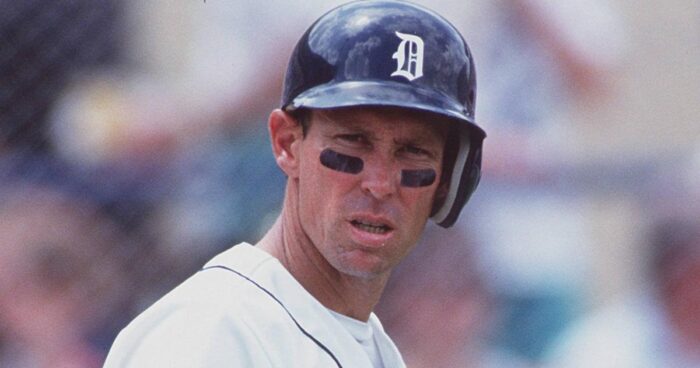
Alan Trammell, one of the greatest shortstops in MLB history, had an impressive career with the Detroit Tigers. He played a total of 2,293 games, had 8,336 at-bats, and achieved 2,365 hits. Trammell’s power was evident with 185 home runs, and he also contributed to his team’s success with 1,003 RBIs.
What set Trammell apart was his consistent hitting ability, as reflected in his career batting average of .285. He was selected to the All-Star team six times and played a crucial role in the Detroit Tigers’ World Series championship victory in 1984. Trammell’s exceptional performance in the World Series earned him the prestigious title of World Series MVP.
Not only was Trammell an offensive force, but he also excelled defensively, showcasing his exceptional fielding skills. In recognition of his defensive prowess, he was awarded the Gold Glove in 1987. Additionally, his offensive prowess was acknowledged through his winning of the Silver Slugger Award in the same year.
Alan Trammell’s outstanding career statistics and contributions to the game of baseball solidify his status as one of the greatest shortstops in MLB history. His achievements and impact on the game will be remembered for years to come.
12. Joe Cronin
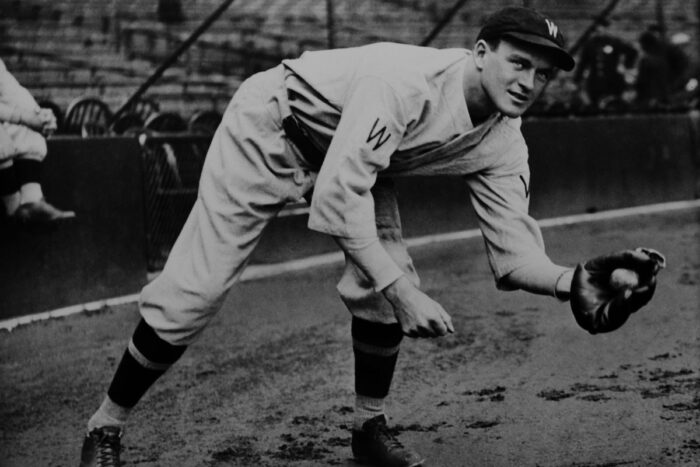
| From 1926 to 1945, Joe Cronin showcased his remarkable skills as a shortstop in Major League Baseball, leaving an enduring legacy. Throughout his illustrious career, he graced the ranks of the Washington Senators and the Boston Red Sox. |
| Cronin was known for his exceptional offensive abilities. He had a career batting average of .301, with 2,285 hits, 170 home runs, and 1,424 RBIs. He was a consistent performer at the plate, with 14 seasons batting above .300. |
| Defensively, Cronin was solid and reliable. He had a career fielding percentage of .964, showcasing his skill and accuracy in the infield. He was also known for his leadership qualities, serving as a player-manager for the Red Sox for several years. |
| Cronin’s overall impact on the game was undeniable. He was a key contributor to the success of the Red Sox, helping them win two World Series championships in 1935 and 1945. He was a 7-time All-Star and was inducted into the Baseball Hall of Fame in 1956. |
| Joe Cronin’s legacy as one of the greatest shortstops in MLB history is indisputable. His impressive offensive and defensive skills, along with his leadership on and off the field, solidify his place among the elite players of his time. |
13. Luke Appling
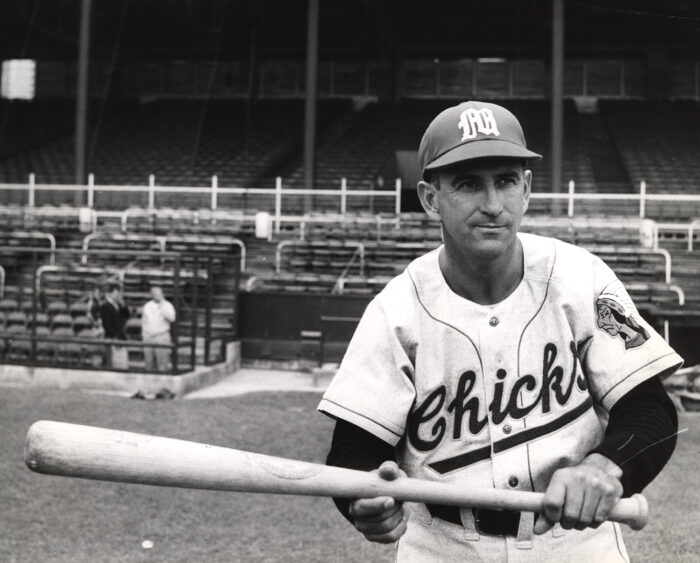
Luke Appling, placed at the 13th position among the most notable shortstops in MLB history, gained recognition for his exceptional defensive abilities, offensive brilliance, and significant contributions to the game. Appling showcased his skills for the Chicago White Sox from 1930 to 1950, earning a reputation as one of the greatest defensive shortstops during his era.
Defensively, Luke Appling, ranked 13th among the greatest shortstops in MLB history, was renowned for his exceptional range, quick reflexes, and strong arm. Luke Appling, ranked 13th among the greatest shortstops in MLB history, had a career fielding percentage of .971, demonstrating his ability to make challenging plays with precision and consistency. His defensive skills were instrumental in helping the White Sox maintain a strong defense and compete against top teams.
Offensively, Luke Appling, ranked 13th among the greatest shortstops in MLB history, was a consistent hitter with a career batting average of .310. Luke Appling, ranked 13th among the greatest shortstops in MLB history, had excellent bat control and plate discipline, rarely striking out. He was a seven-time All-Star and led the American League in batting average twice during his career. His ability to get on base and contribute offensively added tremendous value to his team.
Luke Appling had a significant impact on the game through his exceptional skills and leadership. He was respected for his work ethic, professionalism, and dedication to the sport. Luke Appling was respected for his work ethic, professionalism, and dedication to the sport. He made significant contributions to the success of the Chicago White Sox and his influence on future generations of shortstops solidify his place among the greatest players at his position.
14. Jimmy Rollins
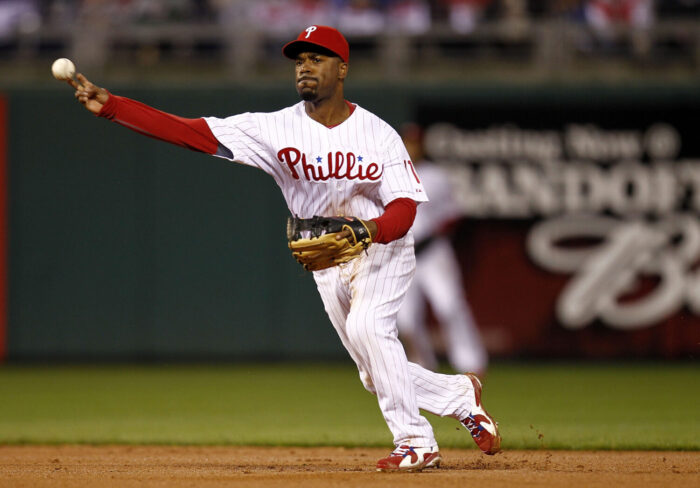
Jimmy Rollins is undeniably one of MLB’s greatest shortstops in history. Renowned for his exceptional defensive skills and offensive prowess, Rollins was an invaluable player on the field. His remarkable impact on the game was evident through his contributions at the plate and his ability to make remarkable plays in the field.
Throughout his illustrious career, Rollins showcased his defensive prowess by capturing four Gold Glove Awards. With outstanding range and a powerful arm, he effortlessly executed challenging plays, making them seem effortless. He possessed the ability to change the outcome of a game with his defensive plays, consistently saving runs and skillfully turning double plays.
When it came to offense, Rollins was a true force to be reckoned with. His impressive speed on the basepaths made him a constant threat, successfully stealing a high percentage of bases. Additionally, he possessed notable power, joining a select group of shortstops who hit 20 or more home runs in multiple seasons. This rare combination of speed and power made him an exceptionally dangerous hitter in any lineup.
Rollins left an indelible mark on the game. As a leader on the field, he often took charge and set the tone for his team. His competitive spirit and ability to perform under pressure cemented his reputation for delivering clutch performances during crucial moments.
As a vital player for the Philadelphia Phillies, Rollins played a significant role in their successful run, culminating in their World Series victory in 2008. The lasting legacy he left in the sport ensures that he will always be remembered as one of the greatest shortstops in MLB history.
15. Miguel Tejada
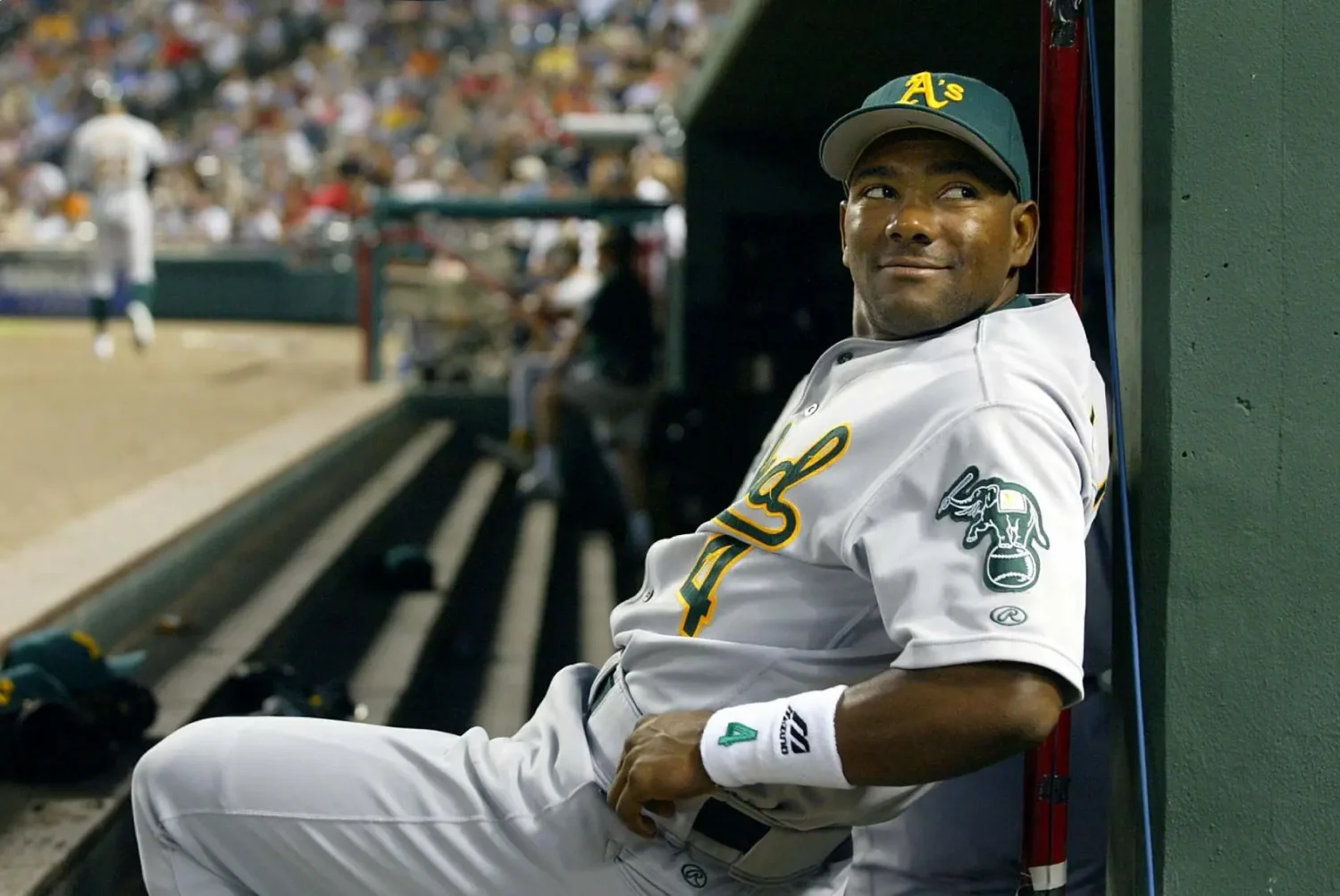
During his remarkable career, Miguel Tejada, an extraordinary shortstop in Major League Baseball, showcased unparalleled defensive abilities. With his powerful arm and lightning-fast reflexes, he effortlessly transformed challenging plays into effortless ones. Undoubtedly proving his defensive excellence, Tejada was honored with two Gold Glove Awards.
Not only was Tejada a defensive standout, but he was also a formidable force offensively. He consistently showcased power and consistency at the plate, hitting for both average and power. Over his impressive 16-season career, he recorded an impressive .285 batting average and launched an incredible 307 home runs.
Tejada’s impact on the game extended beyond his individual performance. He served as a key leader in the clubhouse, admired for his outstanding work ethic and deep passion for the game. His presence and contributions played a vital role in elevating the performance of his teammates.
Throughout his career, Miguel Tejada played for multiple teams, including the Oakland Athletics, Baltimore Orioles, and Houston Astros. With six All-Star selections and the prestigious American League Most Valuable Player (MVP) award in 2002, he solidified his status as one of the greatest players ever to grace the position of shortstop. Both defensively and offensively, Tejada’s contributions to the game firmly secure his place among the top shortstops in MLB history.
Some Facts about the 15 Greatest Shortstops in MLB History:
- ✅ Honus Wagner is considered the greatest shortstop in MLB history. He had an impressive career with the Pittsburgh Pirates, including 3,420 hits, 130.8 WAR, and eight NL batting titles.
- ✅ Ernie Banks tops the list for the Pre-Divisional Era, which includes the period from 1920 to 1968. He made a significant impact and is highly regarded in the history of shortstops.
- ✅ Alan Trammell, a former Detroit Tigers player, is often overlooked for the Hall of Fame despite his impressive statistics. He was a six-time All-Star, won four Gold Gloves, and was the World Series MVP in 1984.
- ✅ Joe Cronin, who played for the Pittsburgh Pirates, Washington Senators, and Boston Red Sox, was inducted into the Hall of Fame in 1956. He was a seven-time All-Star and had a career batting average of .301.
- ✅ Barry Larkin, who played his entire 19-year career with the Cincinnati Reds, had a successful career with numerous accolades. He was a 12-time All-Star, and won nine Silver Sluggers, and three Gold Gloves. He was also the MVP in 1995 and won a World Series in 1990.
Frequently Asked Questions
1. Which shortstop had the highest Wins Above Replacement (WAR) in the Pre-Divisional Era?
In the Pre-Divisional Era, Ernie Banks had the highest WAR among shortstops. He played more games than any other shortstop in this era.
2. Are there any notable shortstops from the Dead Ball Era?
Yes, there are several notable shortstops from the Dead Ball Era, including John Henry “Pop” Lloyd, George Davis, Bill Dahlen, Bobby Wallace, Jack Glasscock, Joe Tinker, Rabbit Maranville, Hughie Jennings, and Dave Bancroft.
3. How are the players evaluated for the All-Time Baseball Player Rankings?
The players are evaluated based on five criteria, with Wins Above Replacement (WAR) as the basis. Adjustments are made for era, integration, level of competition, and missed playing time. Career value accounts for about 50-60% of the ranking score, with the rest coming from long peak, short peak, and prime seasons. Contribution to championship teams is also a small factor.
4. Who are some other shortstops included in the Bleacher Report’s list of the 25 greatest shortstops in modern MLB history?
Some other shortstops included in the Bleacher Report’s list are Derek Jeter, Cal Ripken Jr., and other big names from the modern era of baseball.
5. How many shortstops are included in the ESPN’s list of the top 100 players in baseball history?
The ESPN’s list of the top 100 players in baseball history includes a total of 10 shortstops among the top players from various positions.
Final Words
In this extensive exploration of the top 15 shortstops in MLB history, we have looked at the various roles these players have had, both defensively and offensively. From Honus Wagner and Cal Ripken Jr. to Derek Jeter, each player has made a lasting impression on the sport.
Their incredible abilities in fielding, hitting, and leadership have not only made them standout individuals but have also greatly contributed to their teams’ successes. These players have revolutionized the shortstop position, setting new standards for defense and offense.
Their impact goes beyond just statistics, influencing the game’s history and inspiring future players. This list is a tribute to their lasting legacies and remarkable contributions to baseball.
